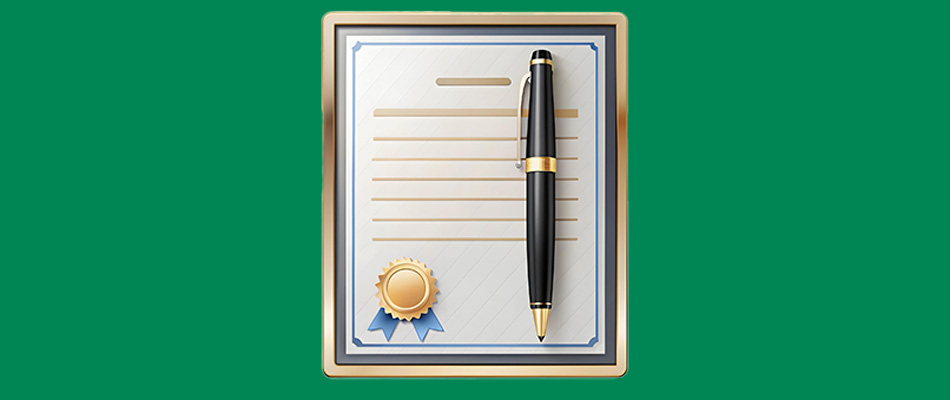The National Senior Certificate stands as the final school certificate for learners in Grade 12. It guides study and work options after school in South Africa. Learners and parents must understand the different matric pass levels, as these directly influence post-school study options.
NSC results reflect how a learner has performed across subjects. They also show the level of study a learner may pursue next. This is why knowing the NSC pass requirements is important. It helps families make informed choices and helps learners plan for university or college study.
In this article, we explain the NSC pass requirements in detail. We also clarify how each pass level compares and what it means for further study.
Table of Contents
Overview of the NSC System
The NSC is a major part of the South African school system. It checks what learners have covered from Grade 10 to Grade 12. The system sets clear rules on which subjects learners must take and how these subjects are marked.
All learners must take:
- A Home Language
- A First Additional Language
- Mathematics or Mathematical Literacy
- Life Orientation
Each subject is marked using a scale from 1 to 7. A level 7 shows excellent work at 80% or more. A level 1 shows a mark below 30%. These points reflect how well a learner has understood the subject content. They also help schools and families see where a learner may need extra support.
These points form the basis of the matric pass levels, as each one requires a certain number of marks in specific subjects. The points also guide post-school choices because different study paths lead to different outcomes.
This structure ensures that learners have a clear picture of their strengths and the options they may consider after matric.
Read More: Difference Between NSC And SC: Key Insights for Learners

Factors That Affect Your NSC Pass Requirements
Grade 12 results are shaped by several academic and personal factors. These elements influence whether you achieve a bachelor’s pass, diploma pass, higher certificate pass, or a general NSC pass. Understanding them early helps learners make informed decisions and avoid barriers to post-school opportunities.
The following aspects play a significant role:
- Subject choices from Grade 10 – The subjects selected in Grade 10 determine which programmes you qualify for after matric. Universities often set minimum marks for subjects such as Mathematics, Physical Sciences, Accounting, or languages.
- Subject weightage – Certain subjects carry more value for degree admission. Strong performance in these subjects improves access to qualifications such as a Bachelor of Business Administration (BBA) or an LLB – Bachelor of Laws.
- Performance in high-value subjects – Failing or scoring poorly in required subjects reduces available options for further education. Learners may need to consider bridging or alternative pathways.
- School-Based Assessment (SBA) – SBA contributes a significant portion of the final mark. Consistent performance throughout the year is important, as the SBA cannot be redone once submitted.
- Final examinations – The final exam contributes to the remaining portion of the NSC mark. Exam readiness, revision habits, and understanding of past papers influence overall results.
Understanding NSC Pass Requirements
The Department of Basic Education sets the requirements of NSC pass. These rules outline the minimum marks learners need to complete matric. Results come from school tasks and final exams. School-Based Assessment (SBA) forms part of the final mark, while the end-of-year exams make up the rest. All results are then checked and certified to ensure fairness.
To meet the minimum NSC pass requirements, a learner must achieve:
- A minimum of 40% in their Home Language
- A minimum of 40% in two other subjects
- A minimum of 30% in the remaining subjects
Meeting these minimum requirements allows a learner to pass matric but does not automatically guarantee entry into higher education. You may fail one subject and still pass overall.
Understanding the Different NSC Pass Levels
Understanding the different NSC pass levels is important because each one determines the type of qualification you can pursue after matric. Your pass level influences access to bachelor’s degrees, diplomas, higher certificates, or general school-leaving options.
Knowing these requirements helps you plan the academic and career route that suits your goals. The table below provides a clear comparison between the various NSC pass levels:
| Pass Level | Minimum Home Language Mark | Other Subject Requirements | What This Pass Level Allows |
| Bachelor’s Pass | 40% | 50% in 4 subjects, 30% in 2 other subjects | Meets the minimum requirement for degree study at a university, subject to institutional criteria. |
| Diploma Pass | 40% | 40% in 4 subjects, 30% in 2 other subjects | Allows entry into diploma programmes and selected higher certificate qualifications. |
| Higher Certificate Pass | 40% | 40% in 2 subjects, 30% in 5 other subjects | Provides access to higher certificate qualifications and structured entry-level study. |
| NSC Pass | 40% | 40% in 2 subjects and 30% in the remaining subjects. You may fail one subject | Confirms completion of Grade 12 but does not grant direct access to higher education. |
Read More: Top Career Options for NSC Students in South Africa
What To Do if You Do Not Meet NSC Pass Requirements?
Not meeting the pass requirements can feel disheartening, but there are several practical options to continue studies. Failing to achieve a desired matric pass level does not close all doors.
Planning your next steps carefully can help you opt for higher education or vocational pathways. Consider the following options if you do not meet the Grade 12 pass requirements:
- Rewrite or upgrade your matric subjects – Learners can rewrite one or more subjects to improve their marks. Upgrading allows you to meet the minimum requirements for a higher pass level.
- Complete a bridging programme – Bridging or foundation programmes help strengthen academic readiness for further study. They prepare learners for degree studies and improve their chances of meeting entry requirements. They also help learners fulfil Diploma pass criteria.
- Enrol in a TVET college programme – Technical and Vocational Education and Training (TVET) colleges are another option. These programmes provide skills that lead to employment or further study opportunities.
Learners who achieve a Higher Certificate pass can still progress into structured qualifications that support long-term academic growth.Read More: NSC Admission Letter – Know How To Obtain It?

Explore Our Other Programmes

Conclusion
Completing the National Senior Certificate (NSC) is the first step to planning your study and career path after Grade 12. Understanding the different matric pass levels helps learners and parents make the right choices about higher education or vocational training.
Each pass level opens specific opportunities, from bachelor’s degrees to diplomas and higher certificates. Even if a learner does not meet the required pass level, options such as rewriting, bridging programmes, or TVET programmes remain available. Got your NSC? See which Regenesys qualification you qualify for.
FAQs
What are the NSC pass requirements for matric?
NSC pass requirements are the minimum marks needed in Home Language, other subjects, and overall results to pass Grade 12.
What are the different matric pass levels?
The main levels are Bachelor’s Pass, Diploma Pass, Higher Certificate Pass, and NSC Pass (General School-Leaving).
What subjects count towards bachelor’s pass requirements?
Four subjects with at least 50%, 40% for the Home Language, plus 30% in two other subjects.
What is the Diploma Pass criteria in the Matric exams?
A minimum of 40% in Home Language, 40% in four subjects, and 30% in two others.
Can I fail a subject and still pass matric?
Yes, you may fail one subject and still meet the NSC pass requirements depending on your overall marks.







